A Member of Parliament representing Orkney and Shetland has warned that fisherman there are at risk due to ‘ordnance left there from the end of the second world war’.
Alistair Carmichael, MP for Orkney and Shetland and Liberal Democrat Spokesperson on Home Affairs, asked in Parliament:
“Fishermen working in Scapa Flow occasionally still dredge up ordnance left there from the end of the second world war. My constituent Ian Spence did exactly that in January this year. For the loss of a day’s fishing, damage to his gear and the personal danger in which he was put, he was given an ex gratia payment of £228. Can the Secretary of State explain to me and to my constituent why he considers that to be adequate?”
Ben Wallace, The Secretary of State for Defence, responded:
“I will have to look at the detail of that case, and I am happy to write to the right hon. Gentleman. Compensation and liability are obviously linked to who is at fault, and I will ensure that I furnish him with the details.”
Carmichael was also reported as saying:
“We need a systematic sweep of Scapa Flow to clear out any remaining ordnance.”
Background
Scapa Flow was one of the United Kingdom’s main naval bases during the First and Second World Wars, the facility was closed in 1956 and since the scuttling of the German fleet after World War I, its wrecks and their marine habitats form an internationally acclaimed diving location.


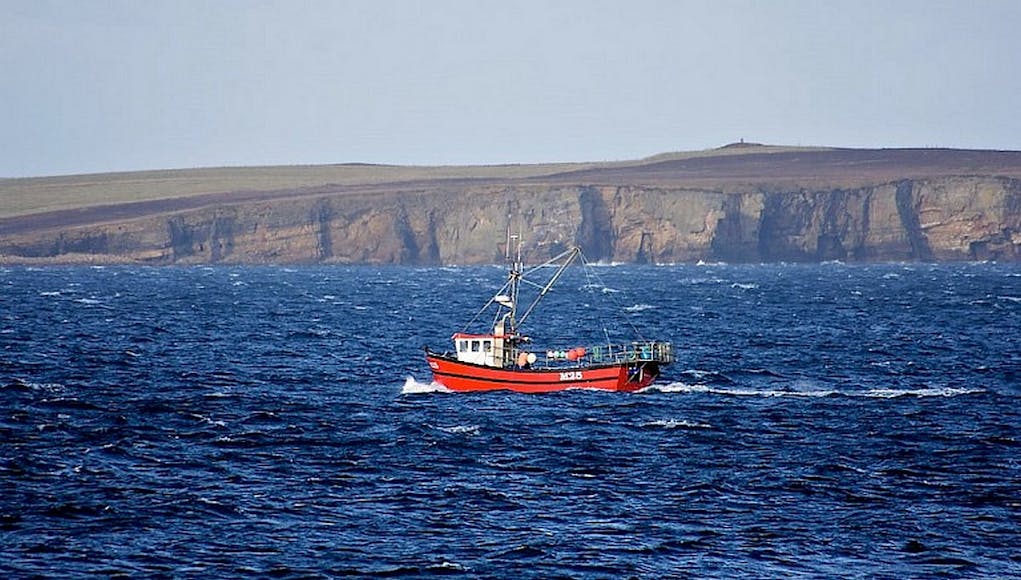
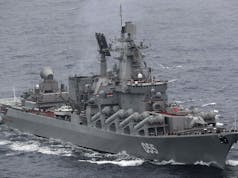
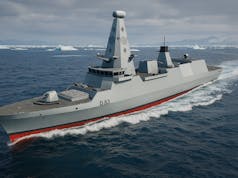

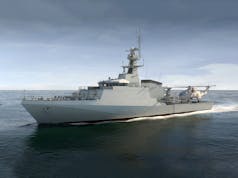

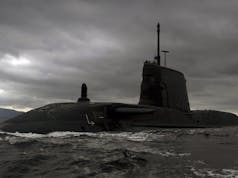
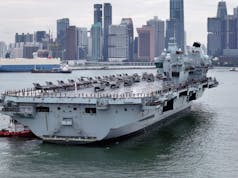
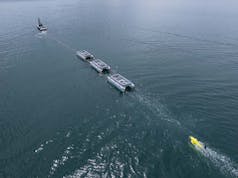
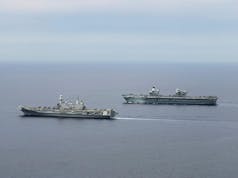
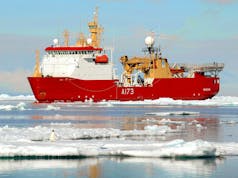

Would be great training for sweepers, divers and drones I’m sure. In fact, if drones are supposedly ‘force multipliers’ right? So lets put it to the test. There’s a bunch of old ordnance over there… go sniff it out.
In fact… why not hold a competition? 1 sweeper with divers Vs the best drones we have available. Let’s see who finds more ordinance over a given period of time. Who can search further, faster, smarter etc.
Would love to see the outcome of something like that.
If drones are supposed to be the future… well then put into the test against a current “traditional” minesweeper crew.
M@
Matt a combination of brain power and automated systems will be the future. I take it you are not a fan of automated systems.
Hi Mark. Actually, having studied AI and Automated systems at uni, I’m very excited to see their military applications. Conversely I don’t want their roll-out to be at the expense of giving our guys and girls up to date equipment, ammunition across the services, stocks of missiles etc. Oh and not to mention having troop numbers cut any further.
An exciting time for sure, but I do expect some difficult choices being made in the very near future. Next strategic defence review will be … interesting reading
M@
The MCMV forces in the Baltic find WW2 Mines all the time and BALTOPs MCMV workouts happen on a regular basis between lots of NATO nations. There was one this year and they found some mines. The best estimate is that there are 80,000 mines still in the Baltic areas from WW1 and WW2!
https://sldinfo.com/2020/08/nato-mine-disposal-operations-in-norwegian-waters/
One item trawled up compared to 80 K in the Baltic….have some perspective Mr Alistair Carmichael, MP…After 75+ years its probably safer to leave well alone and allow whats on the bottom to rot away in its own time.
Definitely , the safest place for it is exactly where it is
Fishing vessels dredging up uxbs are nothing new. I was on a Devon beach once when one of the boats brought back an object in their nets that was too heavy to bring inboard. Turned out to be a German 500kg, that caused a bit of a stir. In UK waters, the biggest problem is from phosphor bombs and chemical ordnance that was meant to be disposed of by dumping out in the Atlantic. Unfortunately, due to shortage of time and resources, corners were cut and much of it was dropped closer to land. Ben Wallace probably had this in mind when referring to the origin of ordnance determining the level of compensation. We can be blamed for dumped munitions but it’s hardly the govts fault if the weapon was German.
Alternatively, as we know the stuff is down there, why not fish somewhere else!!! Just a thought!
To fish in waters with no UXB risk means fishing nowhere In UK waters at all. Places like Scapa with very soft seabed’s are even worse as 1month there’s nothing there, then the spring tides wash the silt of a device for the next fisherman to catch.
Good point, some places obviously worse then others, but they go where the fish are…..
Hi Deep32……..he earned £228 dredging a bomb but only caught £35 worth of fish…….haha
???
I don’t know how many call outs Northern and Southern Diving Groups get each year, but can imagine they are pretty busy. This sort of thing is not just about Scapa Flow.
I don’t know in total but around the Thames estuary and east coast they get 15-20 real calls a year and then quite a few “could be’s”. I’ve watched a dredger excavator driver run for the hills when he pulled up a torpedo from next to an old shipyard, 1 of the old boys working at the harbour was an apprentice in the shipyard and knew it was a dummy used for drills on the MTBs (he had pushed it off the ramp after the war)
I did my Combat support Boat course at Chatham (Kind of helped that I was based there at the time) anyway we spent a lot of time on the water and one exercise saw us all play a form of orienteering where the punches were fitted onto buoys (Not a good idea to jump on one) which took into account tide tables and one was fixed onto one of the warning buoys around the Richard Montgomery which sank off the coast of the Isle of sheppy with around 6000 tonnes of explosives (The navy took most ordinance off , but around 1500 tonnes remained) They say if it goes up it would take out Sheerness, the Isle of Grain Power station and send a nice little tided wave across the water to Southend. mind you it did sink 75 years ago, so I can only presume (and hope) that a lot of the casings have rusted away, allowing the explosive contents to become wet or even better washed away.
Amazing that ordinance remains viable for more than 75 years, particularly in such a hostile environment
Personally I would say that using this type of thing to test automated systems sounds like a good plan but spending too much money on this when we are supposed to be rebuilding our military seems like a distraction.
Sea mines are the cheapest way for the most militarily insignificant countries to immediately threaten any surface ship or country, be it through damaging naval ships or commercial trade vessels.
Mines remain one of the biggest threats to modern navies to date. Think of the Suez Canal/strait of Hormuz. An extremely significant patch of water which could be easily rendered unusable with a few wooden sail boats and sea mines.
Reducing our MCMVs fleet to beef up the ‘war fighting ships’ would be a false economy as we’d be putting more surface ships (and a significant portion of commercial shipping) at risk with no real way to deal with the problem.
The high quality metal retrieved from salvaging ships of the German High Seas fleet at Scapa Flow has found its way into modern high tech and medical equipment. The Chinese – who else? – have been violating Allied war graves in the South China Sea for the same reason. The German fleet scuttled by their own crews after hostilities ended and no sailors perished as a result of the sinkings.